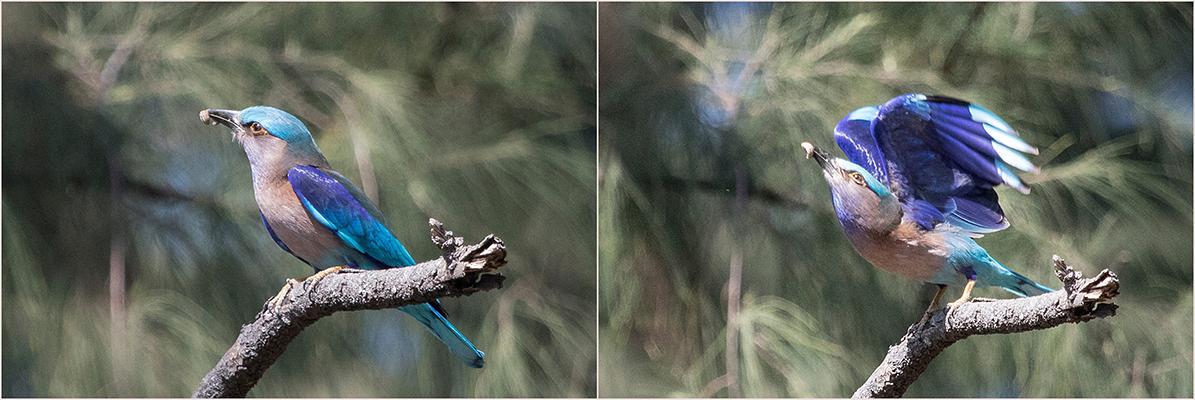Indian Roller

Khao Lak-Lam Ru National Park, Thailand
The beautiful Indian roller is widely distributed across West Asia and the Indian subcontinent
Habitat
Often found perched on roadside trees and wires, It is common in grassland and scrub forest habitats, and adapts well to human modified environments.
Feeding
It mainly feeds on insects, but will also take reptiles, amphibians, small birds and small mammals, perching on a prominent perch in trees or on wires from where it swoops down to forage on the ground. It exploits wildfires, darting into smoke to chase insects escaping the flames and heat. It is also known to follow tractors to forage for disturbed invertebrates.
Breeding
The roller family gets their from the aerobatic male displays during the breeding season. The female lays three to five round, white eggs in an existing hole, cavity or crevice in a tree or building, or a hole may be excavated in rotten wood or in a mud bank. The nest is lined with feathers, straw or grass. The eggs are incubated mainly by the female and the young are raised by both parents.
Wildfile Extras
- The Indian roller is the state bird of the Indian states of Odisha, Telangana and Karnataka.
- It favours perching on a electric wiring and is frequently eletrocuted.
- The Indian roller sometimes dives into water to take frogs and fish, like a kingfisher.
- The Indian roller is associated with Hindu legends and said to be sacred to Vishnu.
- In the early 20th century, when hat plumes were fashionable, the Indian roller was widely killed in India for its colourful feathers.